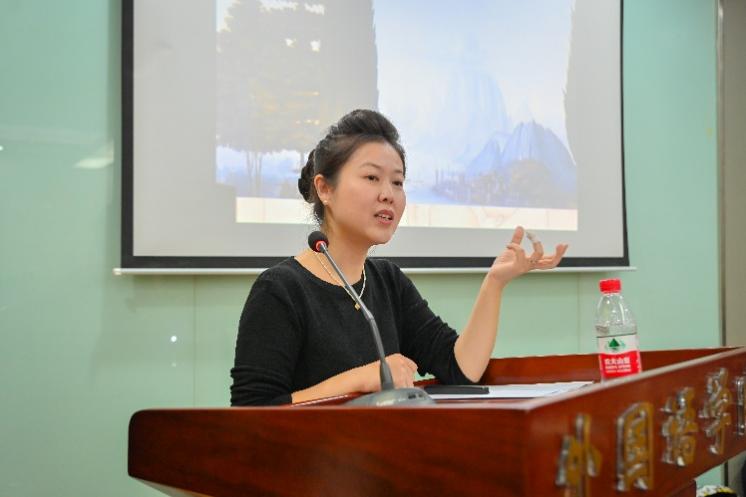On the morning of November 15th, 2024, Professor Li Jingjing, a doctoral supervisor in the Italian Department at the School of European Languages and Cultures of Beijing Foreign Studies University, delivered a lecture titled “Painting as Philosophy: Re-conceptualizing Leonardo da Vinci” at the School of Foreign Studies (SFS) of Nankai University. The lecture was attended by numerous teachers and students from both SFS and the School of Literature at Nankai University.
Prof. Li emphasized that the concept of “boundary” plays a significant role in the creation and research of Leonardo da Vinci, a renowned Italian Renaissance artist. Da Vinci’s thoughts on this concept originated from his geometric reasoning and permeated his artistic creations and scientific investigations. This engagement prompted him to formulate a distinctive array of philosophical concepts and methodologies.
During the lecture, Prof. Li engaged students and faculty in an in-depth discussion about how Leonardo da Vinci distinguished himself from other Renaissance artists, particularly through his innovative use of contour lines and perspective. In Da Vinci’s paintings, the outlines of objects smoothly transition and blend into one another, reflecting his distinctive “view of boundaries”. He believed that there are no definitive outlines to the various elements in the world as perceived by the naked eye. Therefore, in order to convey realism in his artworks, subjects should not possess clear outlines, that is, "boundaries".

Professor Li Jingjing then analyzed the prevalence of incompleteness in Leonardo da Vinci’s works from the perspective of time, suggesting that it may be closely linked to the artist’s personal philosophy and pursuit of perfection. For example, in Annuntiatio Domini (Annunciation), the interweaving and separation of the characters’ eyes and the animated gestures of flowers and grasses swinging along the airflow generated by the swan’s descent in the background. They all reflect his attention to the details of his paintings. Under his brush, all these elements come to life with remarkable realism and vibrancy.
Professor Li further discussed the influence of Leonardo da Vinci’s family background on him, his involvement in various fields including painting, sculpture, engineering, and scientific research, and how these elements impacted his artistic creations. She particularly highlighted Leonardo da Vinci’s love for nature and his efforts to capture its essence through art. His pursuit of perfection, along with his unique insights and ideas, was far beyond his time, contributing to the difficulty of understanding him during that period.
This lecture not only deepened the participants’ understanding of Leonardo da Vinci’s artistic creations, but also encouraged them to re-examine the ideas and innovative spirit of this Renaissance master from an interdisciplinary perspective. Through a thorough analysis of Leonardo da Vinci’s artistic and philosophical thoughts, Prof. Li Jingjing revealed the profound philosophy and unique insights into the nature embedded in his works. This lecture not only enriches the academic horizons of teachers and students but also provides valuable space for cross-border dialogue between art and philosophy.




